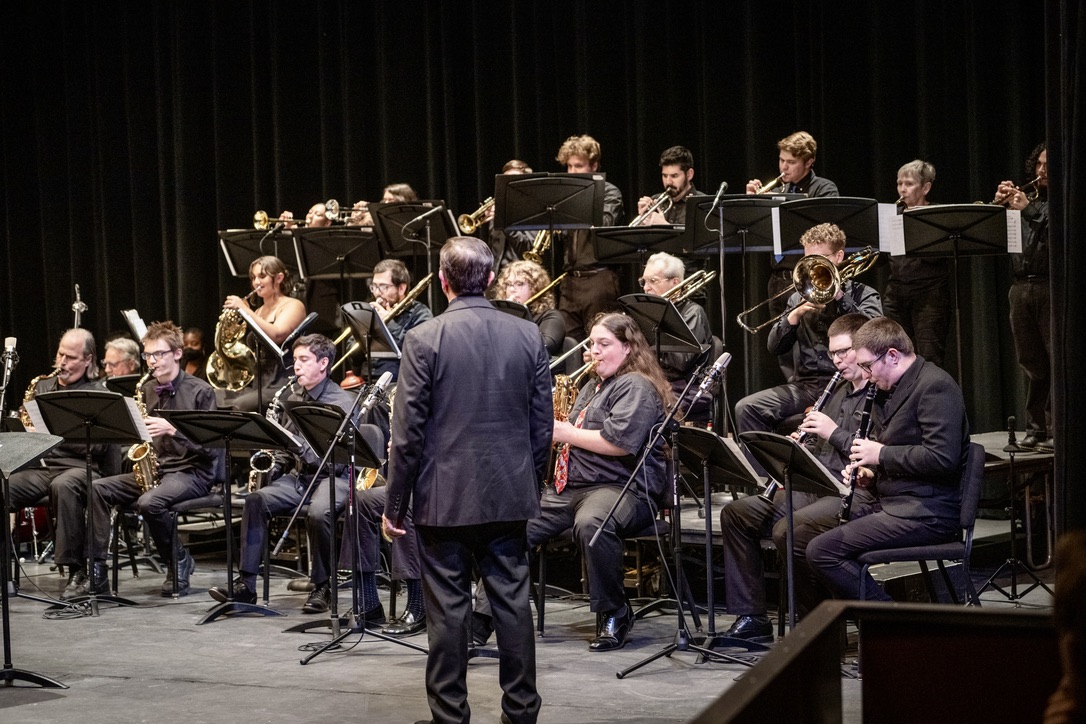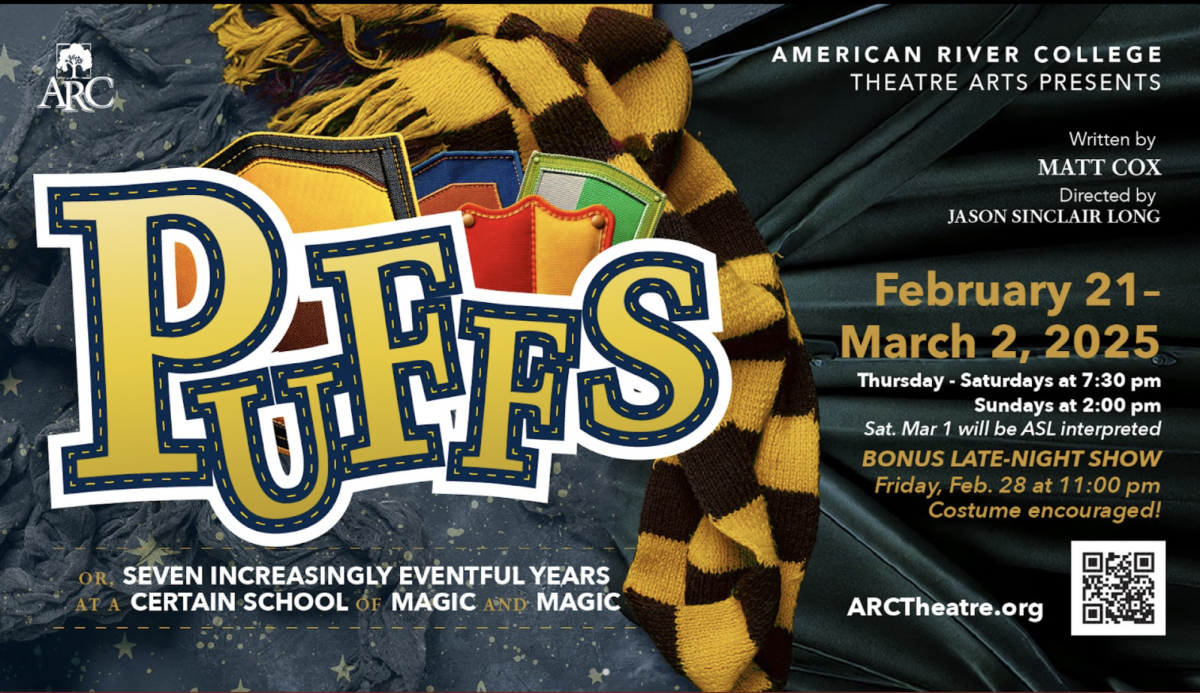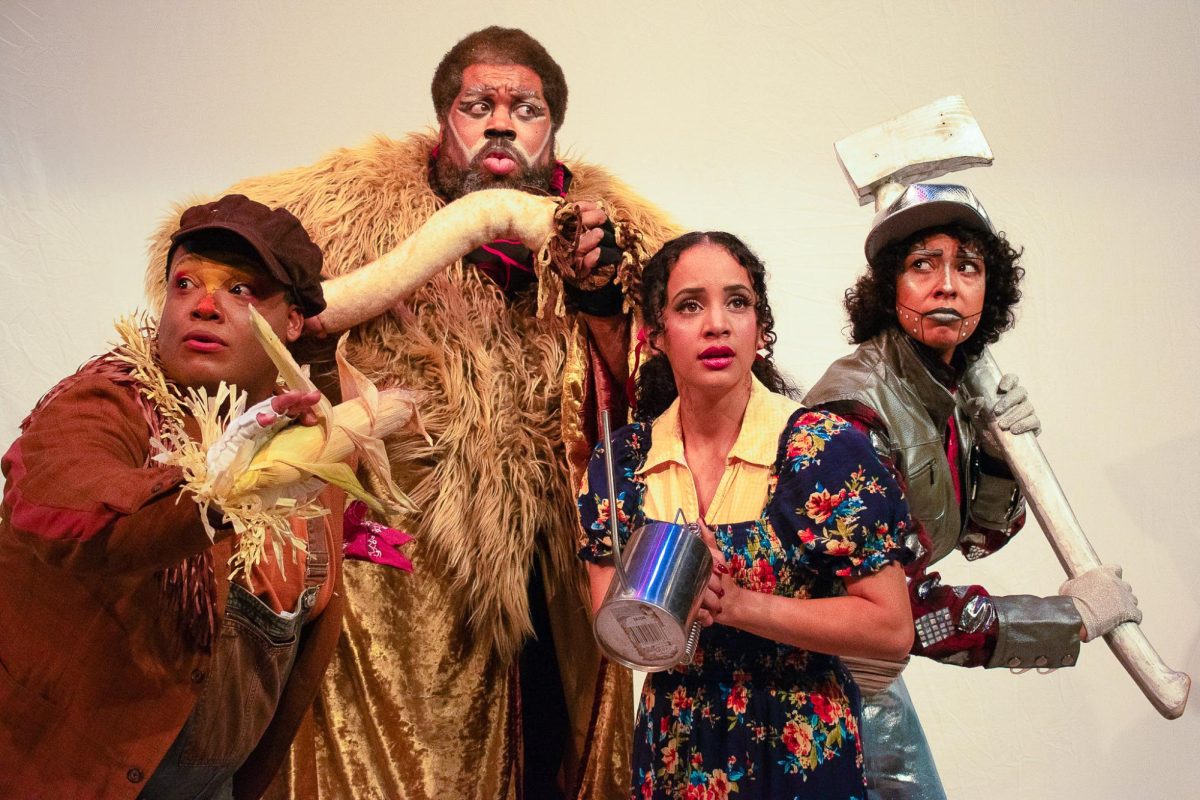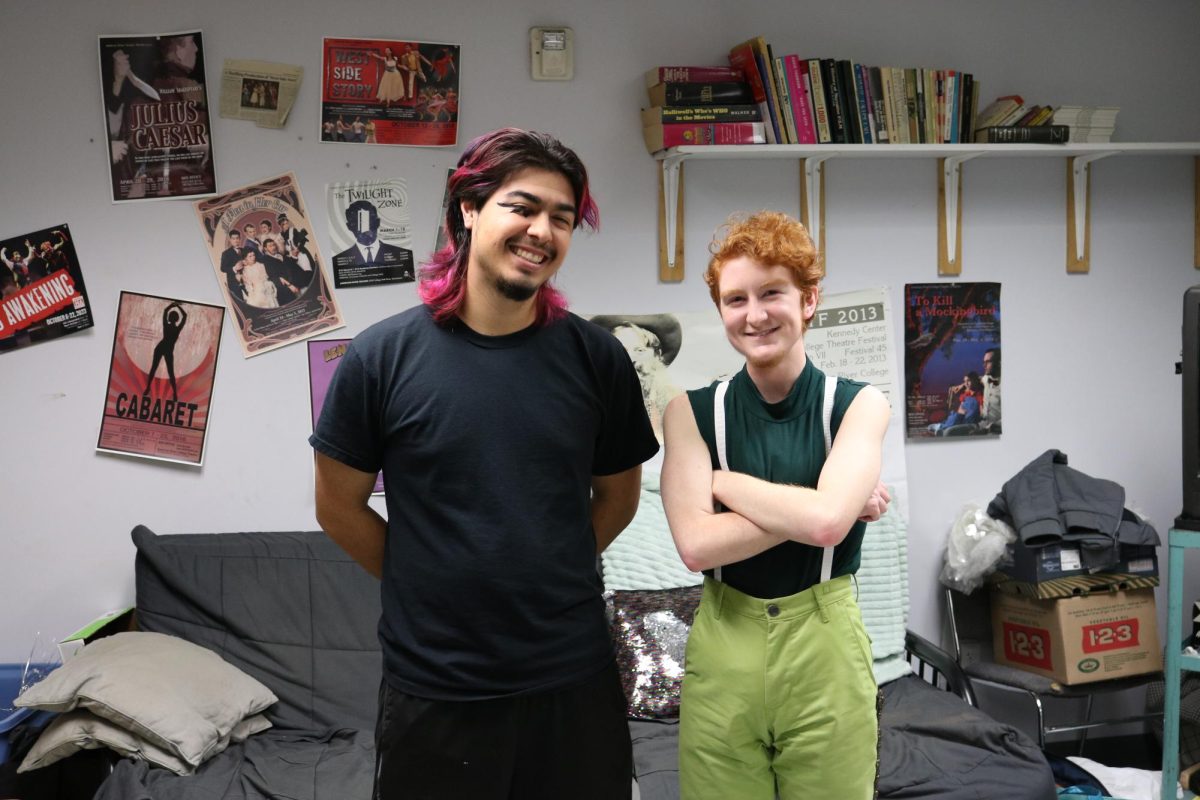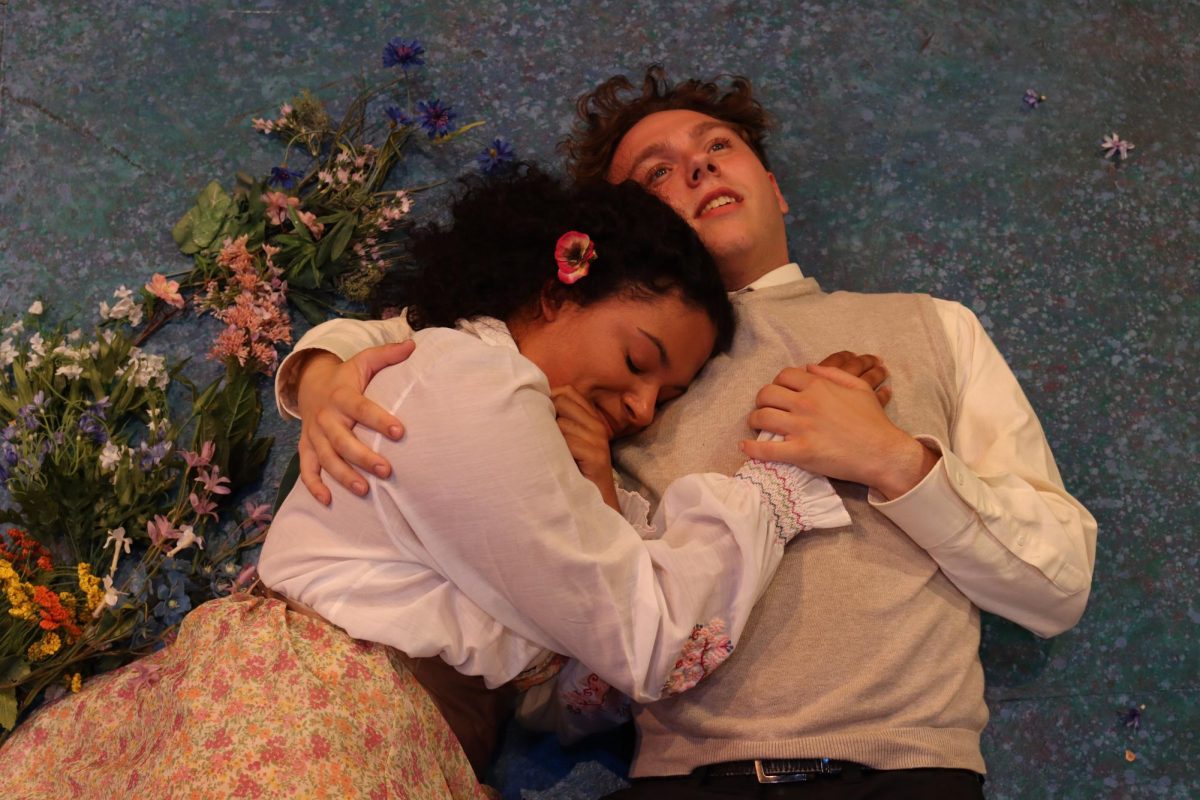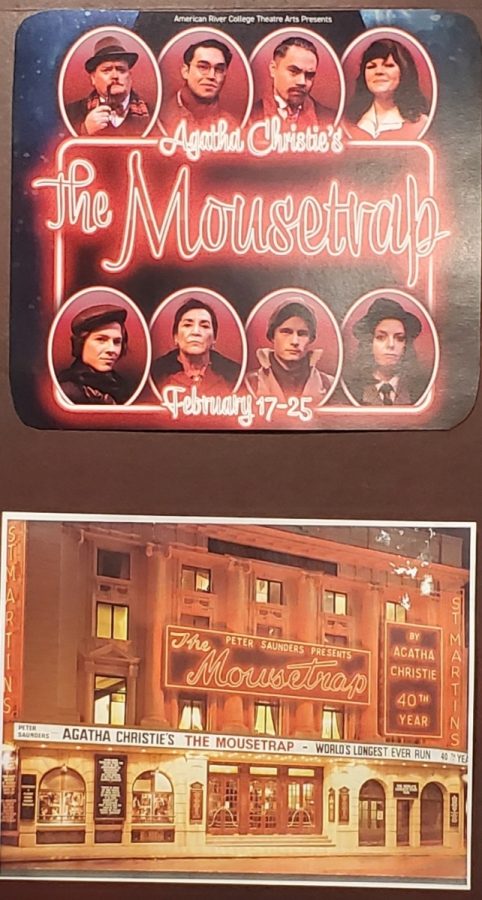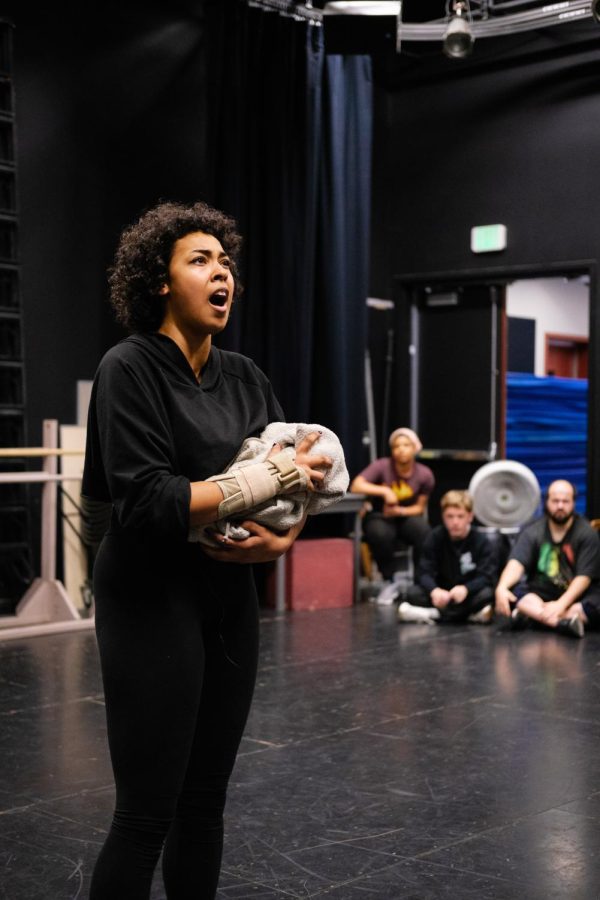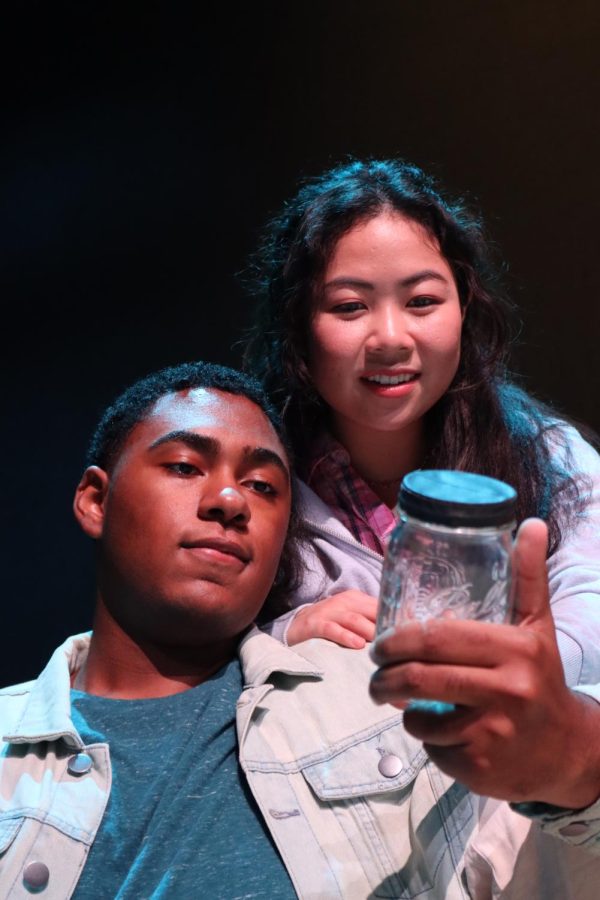ARC’s Brandon Lancaster is an imaginary friend that comes to life in The Alternative Arts Collective’s production of “Mr. Marmalade”
Mr. Marmalade is an imaginary friend. Upon first appearance, Marmalade seems professional. He has a job, wears a suit, and carries a suitcase. He stems from four-year-old Lucy’s imagination and represents everything she has witnessed as a child; all of her fears, worries, goals, and perceptions of the world. Innocent as it may seem, The Alternative Arts Collective’s interpretation of “Mr. Marmalade” was incredibly dark. The show portrayed drug use, sexual molestation, verbal abuse, and suicide.
“The first scene [Marmalade] is in, they play house, he opens [his] suit case, and they have tea,” said ARC theater major Brandon Lancaster, who played the title role of Mr. Marmalade.
The character is erratic and inconsistent. By the second scene, he is verbally, physically and sexually abusive toward Lucy. He does cocaine in front of her and yells for no apparent reason. After being kicked out of Lucy’s house, Marmalade apologetically returns and charms his way to having a second chance at being Lucy’s imaginary friend. The final scene between the two parallels that of a truly miserable couple stuck in a horrible situation.
“Everything I was doing was for Lucy. I stem from her imagination. These are all things that she’s seen, and my goal was constantly to get Lucy any way I can, whether that’s to be her friend or actually have her and have her under my control,” said Lancaster.
Lancaster had a Jekyll and Hyde quality about his character, instantly transforming from a charming, likable man into a perverse, demented persona. It was a role he desperately wanted in order to gain a different perspective in acting. These changes were extreme, and impressive to watch as an audience member.
This role was completely out of his comfort zone, which forced him to apply his knowledge and experience that was given to him at ARC. “I think both theatre experiences are very good, and if you can, you should definitely do both,” said Lancaster. “ARC is educational theater, so you learn a lot when you work with them.”
“The show became almost therapy for me at some points because I was able to dig deep down and use that as motivation,” said Lancaster. “It’s a lot of thinking because those are points that all of us could reach if we allow ourselves to.”




